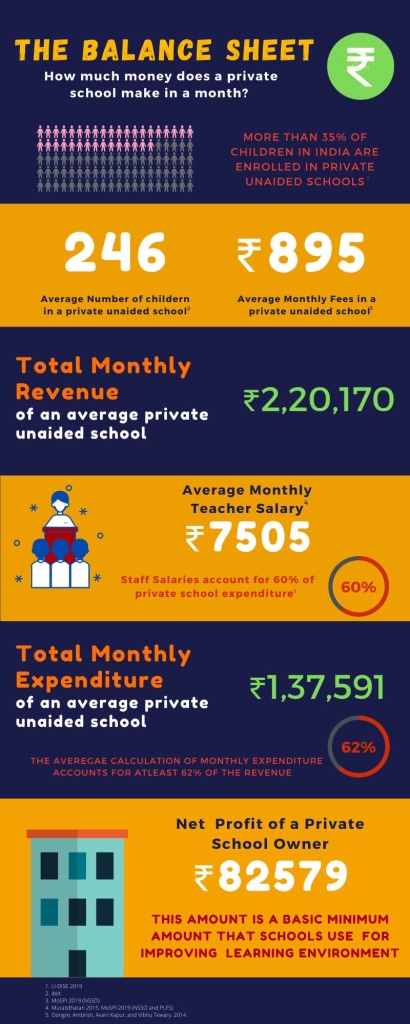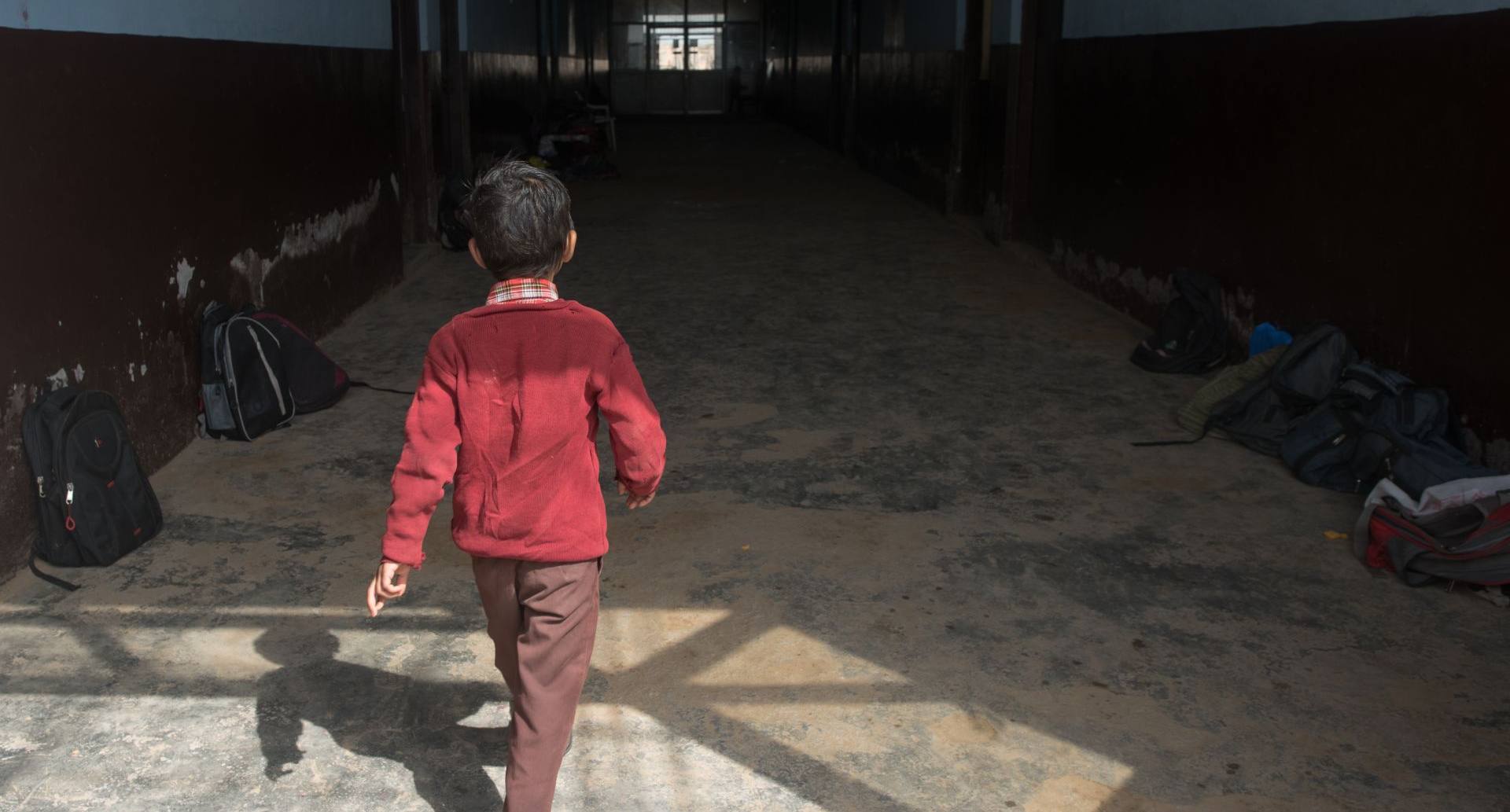A study conducted by the Central Square Foundation suggests that nearly 80% parents from low income households[1] want to continue sending their children to private schools despite their inability to pay fees. And to support their choice, many schools have reduced their fees or allowed delays in payment of school fees during the 2020-21 academic year[2]. The adverse impact on the revenues through this and other channels related to COVID have led low-fee private schools to the brink of collapse.
Central Square Foundation has worked on a ‘Balance Sheet of a private school’ to highlight the low-fee and small establishment nature of the average school in the sector and challenge the myth of private schools as elite, large, high-fee charging institutions. The model uses publicly available datasets and data on private schools from published research studies[3]. With school fees being the primary source of income and staff salaries accounting for nearly 60% of the expenditure, the average private school owner makes a gross profit of about ₹ 82.5k per month, or ₹ 9.9 lacs per year. This figure is also likely an over-estimation of the actual profit made by the average private school. Additional costs to schools such as school principals’ salary, cost of regulatory compliance, etc. are not included in our calculation since nationally representative data for the same is unavailable.

The COVID-19 pandemic has exacerbated the already existing challenges faced by the low-fee private school sector including delays in school fees and RTE 12(1)(C) payments, fixed costs such as rent, bills etc. and the lack of easy access to credit due to regulatory restrictions. This has led to even lower profit margins, most of which are reinvested back into schools to sustain the learning environment.
“Enrolment of non-EWS category students has reduced from 400 to a mere 100 students, out of which only about 20 are paying their school fees as of June, 2021. Teacher salaries are not being paid due to lack of funds and yet some of them still continue to teach on a promise of better tomorrow. Several private schools have collapsed due to lack of fee payments and there is no support from the government. If things do not drastically improve in the coming days, many schools will be forced to close their doors”, says Mr. Chandrakant Singh, owner of Ideal Radiant Public School and national general secretary, Private Land Public School’s Trust, an association of budget schools in New Delhi.
Policy Response
Going forward, we must re-align the perception of private school owners with the reality of the sector at large to enable private schools to focus on outcomes and decrease barriers-to-entry and finance for low and middle-income professionals to start schools for their own communities.
* Current and past members of the Private Schools Governance team at CSF, have contributed to this piece: Aditi Nangia, Apoorva Bhandari, Khushi Gaur, Rahul Ahluwalia, Ruchika Singh and Vedaansh Kaushik (during his internship)


